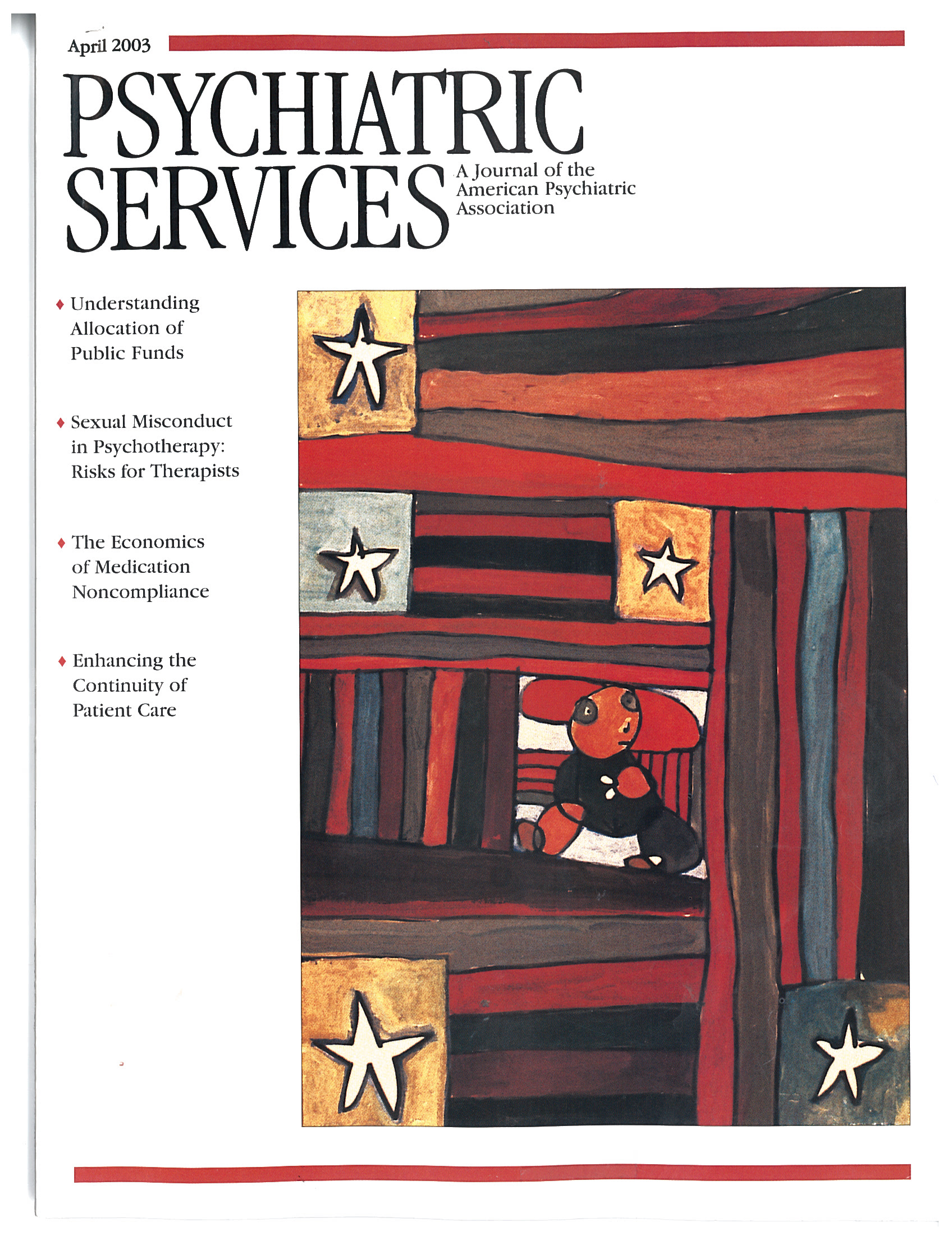Mental Health Resources is a multidisciplinary group practice that provides a non-hospital-based intensive outpatient program (IOP) exclusively for mental health patients. The program was developed as a hospital diversion model to accommodate the trends toward shorter hospital stays and to provide an intensive therapeutic environment in an outpatient setting. This IOP consists of three hours of group treatment programming per day, three to five times a week, and is staffed by a psychologist, a master's-level clinician, and a psychiatrist. Psychiatric consultation and medication management are provided on-site when needed. Patients who are not currently being seen by a psychiatrist receive an initial psychiatric evaluation. Other patients are referred to their treating psychiatrists to be followed more closely during their IOP stay. The IOP has been operating for approximately five years.
The program is designed for persons who are in acute psychological distress and who can be treated on an outpatient basis. The IOP is also ideal for patients who have recently been discharged from a short-term hospitalization or partial hospitalization and who do not require daily medical monitoring. This approach is well suited for others in crisis or acute distress who need a therapeutic milieu, problem-solving skills, and support. Individuals who require more than three hours of care per day or are imminently suicidal, homicidal, or psychotic are not appropriate. Mental Health Resources has met all state requirements necessary for providing this level of care and is licensed by the state of Tennessee to do so.
The IOP has three core components that target affect, cognition, and psychophysiological symptoms. The affective component consists of learning to identify and express feelings, finding safe and appropriate outlets for avoided feelings, and tolerating high levels of emotion without becoming overwhelmed. As in traditional group psychotherapy, resistance to affect or change is confronted, and interpersonal and family-of-origin problems are identified. Repetitive relationship themes that adversely affect current daily functioning are addressed. Patients are assisted in labeling their emotional experience and expressing it in meaningful ways. Difficulties with anger, fear, or sadness are addressed in this context. For example, grief work may assist people in understanding the process of grief, examining blocks to grief, and exploring unresolved losses.
The cognitive aspect of the program consists of teaching problem-solving skills based on the principles of rational behavior therapy. Crisis situations or conflictual relationships are anticipated, action plans are developed, cognitive errors are identified, and rational behavioral strategies are rehearsed and strengthened. Assertiveness, problem solving, anger management, anxiety management, and similar skills training take place through examining one's self-talk, disputing irrational ideas, and teaching both coping and deconditioning skills.
The psychophysiological aspects of the program are concerned with bodily processes that may exacerbate symptoms or be misinterpreted by patients in their recovery. Relaxation exercises, skills for coping with chronic illness, and pain management are some of the typical subject areas addressed.
The psychoeducational groups focus on different content areas depending on the individual needs of the group participants. Some of the areas that may be addressed are loss, out-of-control teens, workplace problems, chronic illness, conflict, and self-defeating behavioral patterns. Identified problem areas are used to teach coping skills that provide new strategies or solutions. Approaches such as daily homework assignments, self-monitoring, and diaries are frequently used to develop and maintain coping strategies.
Nearly 90 percent of our patients have a diagnosis of major depression, 70 percent have axis II diagnoses, and nearly 60 percent have comorbid medical problems. Complex cases (multiple diagnoses) are effectively treated in the program. According to multiple symptom measures, the program's patients were significantly more distressed and endorsed a greater number of symptoms and a greater degree of symptom severity than both local and national hospitalized psychiatric samples.
On average, these patients were treated for 17 sessions, occurring over a period of seven weeks. The typical IOP patient is in treatment three days per week, although patients might need more visits earlier in the treatment and fewer visits later on. The average daily census is approximately six, with a range of four to ten.
Previously published pre- and posttreatment measures of our patients' symptoms demonstrated very significant improvements on seven of nine symptom scales, including depression and anxiety. Similarly, very significant treatment effects were demonstrated on all four of the measures of global distress and symptom severity. By discharge, the average patient had essentially returned to his or her premorbid level of functioning, based on pre- and posttreatment ratings on the Global Assessment of Functioning (GAF). The patients have also indicated that they are highly satisfied with their treatment. On a scale of 1 to 4, the average satisfaction score across eight items was 3.7. Mental Health Resources has demonstrated that its mental health IOP is a safe, clinically effective, cost-efficient, less-restrictive, and highly rated consumer-friendly service.
IOPs present an opportunity for the development of multidisciplinary private practice groups. By providing program effectiveness data, urgent appointments, and crisis intervention services, IOPs can also lend credibility to private-practice groups wanting to collaborate with larger systems of care, including hospitals, partial programs, employee assistance programs, and managed care organizations. At this community systems level, IOPs give multidisciplinary practice groups the potential to become part of an integrated continuum of care.

